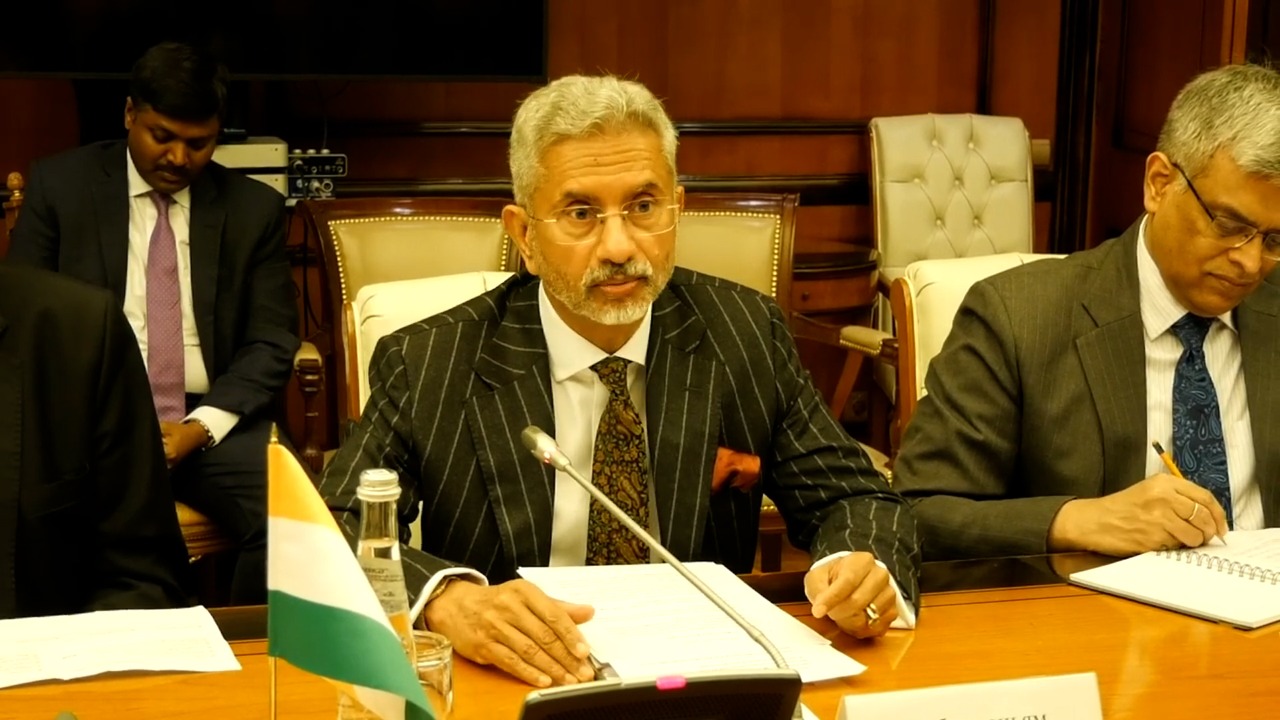Minister of External Affairs S Jaishankar warned the world against the threats of new technologies being used to fund terrorism. He also underlined the role charities, NGOs and crowd-funding initiatives play in indirectly financing terrorist activities at the two-day No Money For Terror Ministerial conference.
“Recent trends suggest that terrorist groups have found new ways to finance their activities. It appeared groups are quick to adapt to new anonymous payment technology and to collect and transfer funds while evading monetary enforcement structures. Misuse of new financial technologies, methods such as blockchain technologies virtual cryptocurrency digital crowdsourcing prepaid phone card have all posed serious risks to the effort of countering financing of terrorism. Apart from this fake charities, fake non profit organisation have become frequent sources of terror financing. We must be on guard against such entities and their operations,” he said.
Jaishankar raised alarm about how advancement in technology is more readily accessed by terrorists than by law enforcement agencies. Technology has also led to resurgence of radical ideologies and its more seamless spread along with motivational messages, he said.
Without naming Pakistan Jaishankar took potshots at the country for its continued tendency to use terrorrism as a tool of state-craft. “It is important that all states follow a collective undifferentiated, undiluted, approach to terrorism. Terror is terror and no political spin can ever justify it. Most states today are making efforts to place effective deterrent at the domestic level against terrorist entities. There are however a few who aid support and justify terrorism and wilfully provide assistance and safe haven. While we must enhance the capacities of the former, the international community must collectively call out the latter,” he sent out a strong message.
He also highlighted the problems with curbing cross-border terrorism.”While cross-border support is behind terrorist attacks, the irony is that any response by authorities to terrorism stops at their geographical border because that’s where their jurisdiction ends. These limitations for law enforcement agencies play to the benefit of terrorist groups. In India’s context terrorist groups from across the border such as Lashkar e- Taiba, Jaish e Mohammad, or Harkat-ul-mujahideen and their proxies thrive on financial support to commit barbaric acts of terror on Indian soil. ”
He also pointed out that the world as a whole hasn’t exactly lived up to its commitment of countering terrorism. “Friends, it is a reality check that despite security council resolution 2642 to curb the financing of terrorism, its implementation by member state remains uneven because of lack of political will. The global fight against terrorism cannot succeed without conscious and coordinated effort to counter financing of terrorism”, he said.
“The threats are greater, the capabilities are more and our vulnerabilities have increased. The very efficiencies of the modern world are today being harnessed for evil purposes. The pain and suffering of victims and families multiply further when rights and justice are denied. When perpetrators, facilitators, and financers of terror attacks continue to walk free enjoy state support and hospitality. The most egregious example we all know pertains to the 2008 Mumbai terror attacks,” he said.
Jaishankar emphasized the need to rise above political divides and to address this peril. The battle against terrorism must be fought resolutely, on all fronts, in all situations and at all places. “The challenge, however, is that while the bad guys think global and lateral. The good guys think national vertical,” he said.
The battle against terrorism must be fought resolutely on all fronts, in all situations and at all places. “It is essential to encourage a “whole of the government” approach at home and a “whole of the world’’ approach abroad,” he said.
This can be achieved through:
➡️sharing real-time information,
➡️exchange of evidence, witness statements,
➡️adopting effective procedures for bringing them to justice through prosecution or extradition,
➡️freezing of their financial assets,
➡️preventing their movement through their territories,
➡️preventing supply of all types of arms and related material to them,
➡️ providing full cooperation to the states where or against whose citizens terrorist acts are committed.
“India, along with like-minded partners, will remain committed and energetic to highlight the existential threats that terrorism poses to global security and stability. We will shine the spotlight on this peril – and all those involved in nurturing and furthering it,” he added.
The ‘No Money for Terror’ platform aims to broad base the Big Fight against Terror Financing, he said. “When it comes to terrorism, we will never look away, we will never compromise and we will never give up on our quest to ensure justice,” he added.
The two-day conference organised on 18th-19th November offered a unique platform for participating nations and organisations to deliberate on the effectiveness of the current international regime on Counter Terrorism Financing and the steps required to address emerging challenges. The conference built on gains and learnings of the previous two conferences (held in Paris in April 2018 and in Melbourne in November 2019) and will work towards enhancing global cooperation to deny finances to terrorists and access to permissive jurisdictions to operate. It was attended by about 450 delegates from across the world, including Ministers, Heads of Multilateral organisations and Financial Action Task Force (FATF) Heads of Delegations.










